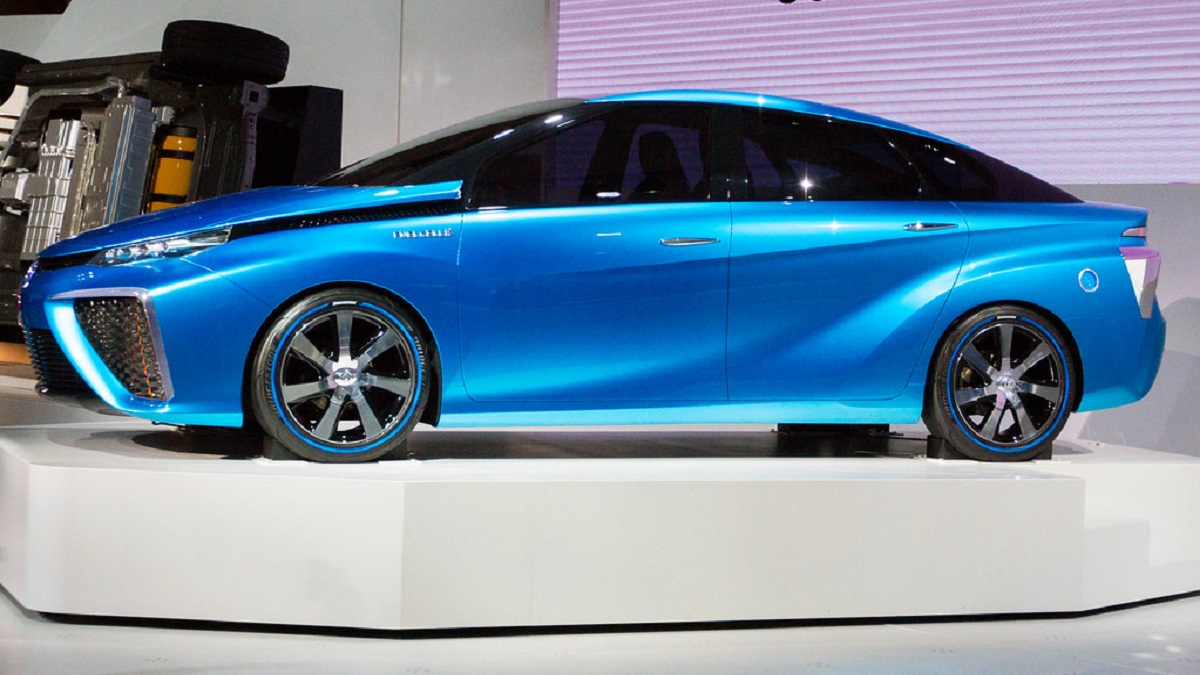New Delhi: More than two centuries ago, French inventor Francois Isaac de Rivas developed a primitive engine that was powered by hydrogen and oxygen and ignited by an electric spark. Hydrogen vehicles can be powered in two different ways:
- With fuel cell system and
- With internal combustion engine
Hydrogen car with fuel cell
Let us know how a hydrogen powered car runs with a fuel cell. A hydrogen powered car is powered by an electric motor only, it has a fuel cell.
Fuel cell:-
A battery is a device that takes chemical energy in the form of hydrogen and converts it into electrical energy, which, like a battery, is used to power an electric motor.
Hydrogen tank:-
It is thick walled and crash tested. It is usually placed under the rear seat. In this tank, hydrogen is mixed with air and hydrogen is pumped into the fuel cell through that tank.
Inside fuel cell:-
Inside the cell, a chemical reaction removes electrons from the hydrogen. The remaining hydrogen protons circulate throughout the cell and combine with oxygen in the air to form water.
Meanwhile, the electrons create electricity that charges a small storage battery used to power an electric drive train, just like an electric vehicle.
Let us now know how the hydrogen car runs with the internal combustion engine. These types of vehicles differ from hydrogen fuel cell vehicles because of the combustion system.
The hydrogen IC engine is a modified version of the conventional gasoline-powered engine.
As such, the combustion system is similar to that of other high-temperature combustion fuels such as gasoline, diesel, and natural gas.
- Hydrogen engines are actually similar to gasoline-powered engines in many ways. Both of them use four-stroke design for intake-compression-ignition and exhaust and both give the same kind of sound.
- The main difference is in the exhaust system. Hydrogen engines exhaust water as a main byproduct of their combustion cycle, instead of toxic nitrogen gases.
- Zero carbon emissions means that no other by-products should be created to offset the main greenhouse gas emissions of a conventional petroleum engine.
- Hydrogen engines also generate heat, which is responsible for global warming but generates almost as much heat as a normal gasoline engine produces. That’s why hydrogen engine is not considered zero carbon emission
- The drawback of hydrogen is that it is difficult to store
- Due to the very small molecular size of the hydrogen atom, the leakage of hydrogen occurs very quickly and it acts as an explosive with air.
- Still has great potential to generate zero carbon emission electricity
- Hydrogen fuel is a cleaner fuel than petrol and diesel fuel.
- The cell system is completely emission-free than IC engine system.













